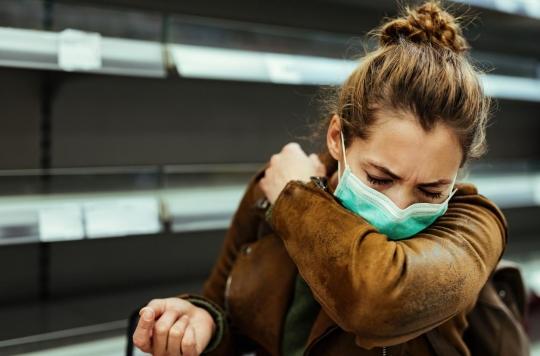The number of suspected cases is increasing exponentially in our territory.

- The English mutant of Sras-Cov-2 is present on our territory and circulates there very quickly.
- In a context of emergence of the British (VOC 202012/01), South African (501Y.V2) and Brazilian (B.1.1.28) variants, the HCSP is issuing new recommendations.
A new study demonstrates the strong progression of the English variant on the territory. Biogroup laboratories participated in a flash study carried out on January 7 and 8, 2021 with the aim of mapping the presence of the English variant on French territory, the first results of which have just been unveiled.
“The English variant is progressing rapidly”
All private and public laboratories have sent their PCR positive strains to be tested on PCR Thermofisher, so that suspected cases can be sequenced. Here is the map of the prevalence of suspected cases following the analysis of the results of this flash study (number of cases in a population at a given time):

In Île-de-France, for example, after analysis of the sequencing results on the suspicious positive PCRs transmitted on Thursday January 21 by the CNR Pasteur, it turns out that the confirmation rate is higher than that initially announced. Of the 60 samples, nearly 97% were confirmed VOC-UK variant. Since this flash study, the Biogroup network has continued monitoring suspected cases in Île-de-France with the ARS (Regional Health Agency) and the results are clear: the number of suspected cases is increasing exponentially.
New recommendations from the HCSP
Dr. Laurent Kbaier, biologist for Biogroup laboratories, summarizes: “the conclusions of this study speak for themselves: the English mutant is indeed present on our territory and circulates quickly, very quickly”. He continues his analysis: “The evolution of the number of suspected cases shows a rapid progression, and this data is consistent with what we can see in other countries. Wherever this mutant appeared, it very quickly became the dominant virus. It is better adapted to humans and therefore has a selective advantage compared to other strains”.
In a context of the emergence of British (VOC 202012/01), South African (501Y.V2) and Brazilian (B.1.1.28) variants, the HCSP recommends for its part: strengthening and strict compliance with barrier measures ; monitoring the spread of these variants on national territory; limiting travel to and from areas currently considered at risk; the requirement of a negative RT-PCR test (carried out within 72 hours maximum) before any entry into the national territory, isolation for 7 days upon arrival and a lifting of this isolation if the RT-PCR carried out at the The outcome of this isolation is negative; maintaining isolation times in the event of SARS-CoV infection.

















